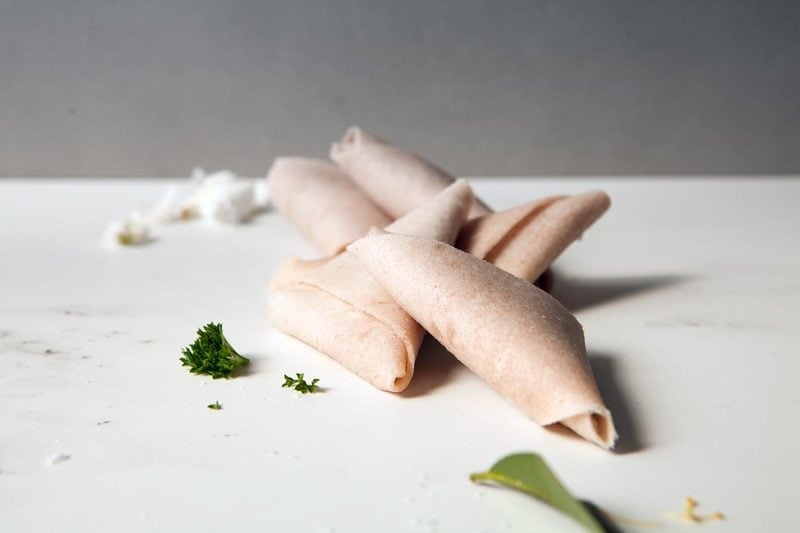
Today my friends, we are making healthy samosas. No pastry, no deep frying!
The wrappers for these are made with pure, raw coconut flesh, cleverly blended to a smooth paste and evenly dried into a pliable wrapper. I first discovered them on my Raw Foods Training in Bali, and have been dreaming about them ever since.
There is so much you can do with the humble coconut – it just blew my mind that you could make soft wraps with the fresh flesh! They make 'samosas' soft in texture, slightly sweet, and a lovely muted pink tone. Stuff them with the turmeric potatoes from last week’s recipe and you’re onto a winner - especially when you consider these are a totally healthy, gluten free alternative to the traditional recipe.
[bctt tweet="Make your own Raw Coconut Wraps and turn them into healthy Samosas! Recipe here."]
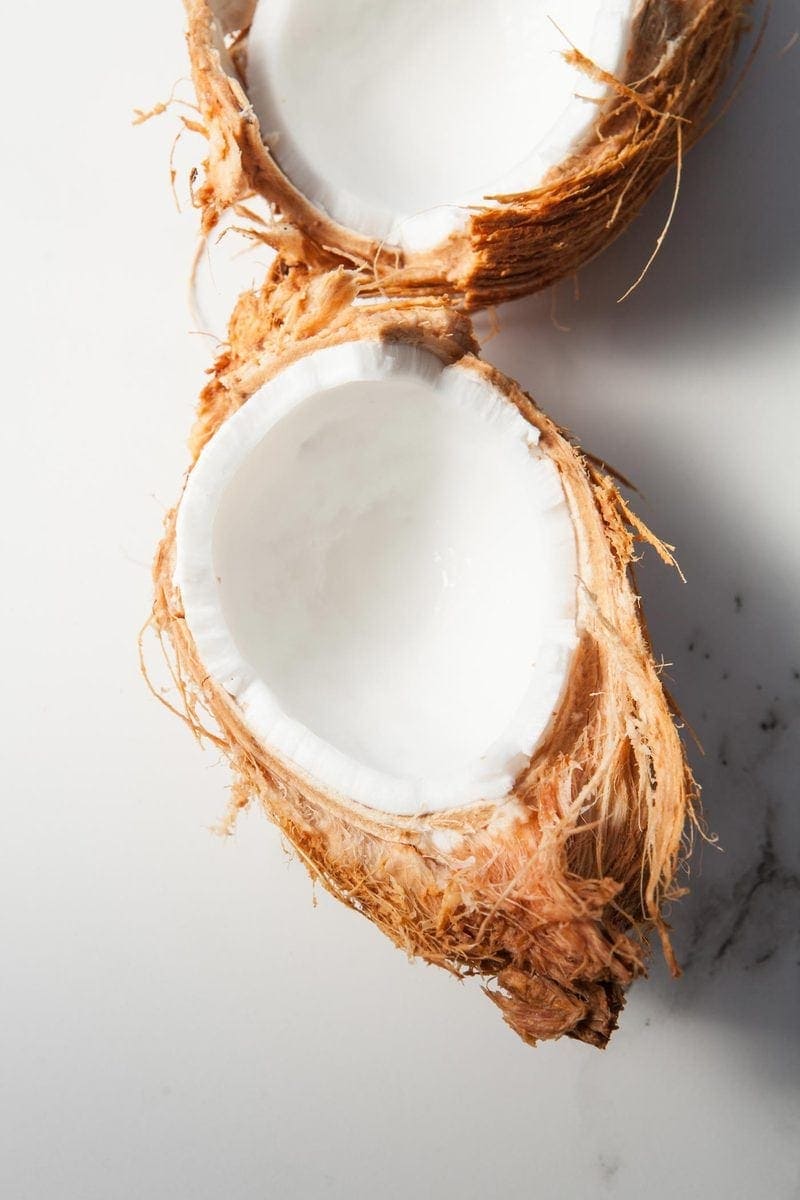
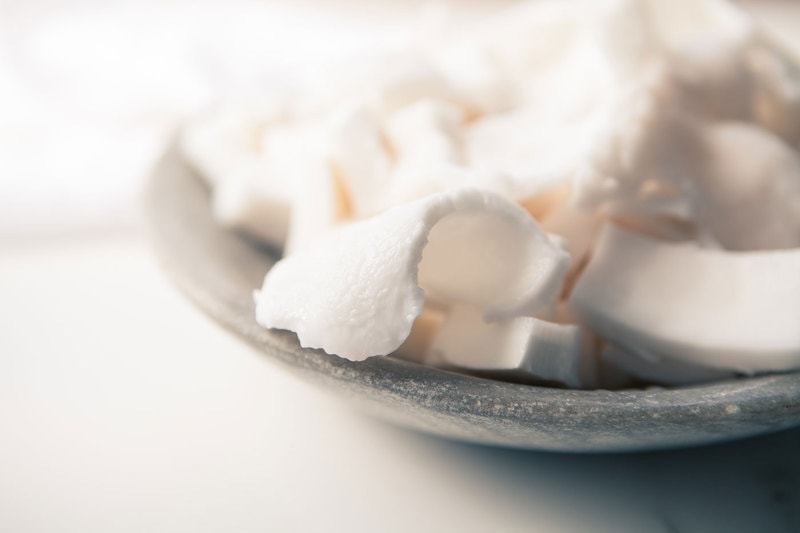
How to make raw coconut wraps
Although it’s quite a simple recipe, it can be a bit messy and require a bit of muscle. You’ll need to source a good handful of coconuts, crack them open, collect and save the liquid, then scoop out the flesh. From there, you blend the flesh with a little of the coconut water if needed, and spread evenly over a dehydrator tray to dry.
A few pointers:
- Buy a couple more coconuts than you need – sometimes there is very little flesh inside so it’s very much a lucky dip
- If the flesh inside is very thin, watery and soft, be sure to spread a thick layer of it over the dehydrator tray, as it will evaporate as it dries and be prone to cracking
- Soft, watery flesh probably won’t need added coconut water to help it blend
- If the flesh is mature (hard and thick inside), then use a knife to scour the meat into smaller sections, and use a spoon to separate it from the husk
- Mature, hard flesh needs to be chopped into small pieces to facilitate the blending, you will also need to add coconut water
- Aim for about 800g total coconut meat
- Use approximately 2 cups blended coconut per dehydrator tray
- If you have any mixture left over, keep it on hand – if you notice any cracking whilst they dry, add a little of the remaining mixture to patch up the tear
- Remove from the dehydrator when they are still a little soft and pliable, otherwise they will crack when you fold them.
The cheat’s way to open a coconut: place inside multiple plastic bags, twist, then literally take a big swing and whack it hard on a concrete flooring outside. There’s no chance of reserving the liquid, but the nut will crack open fairly easily after a few good hits. Note: be prepared for a bit of mess!
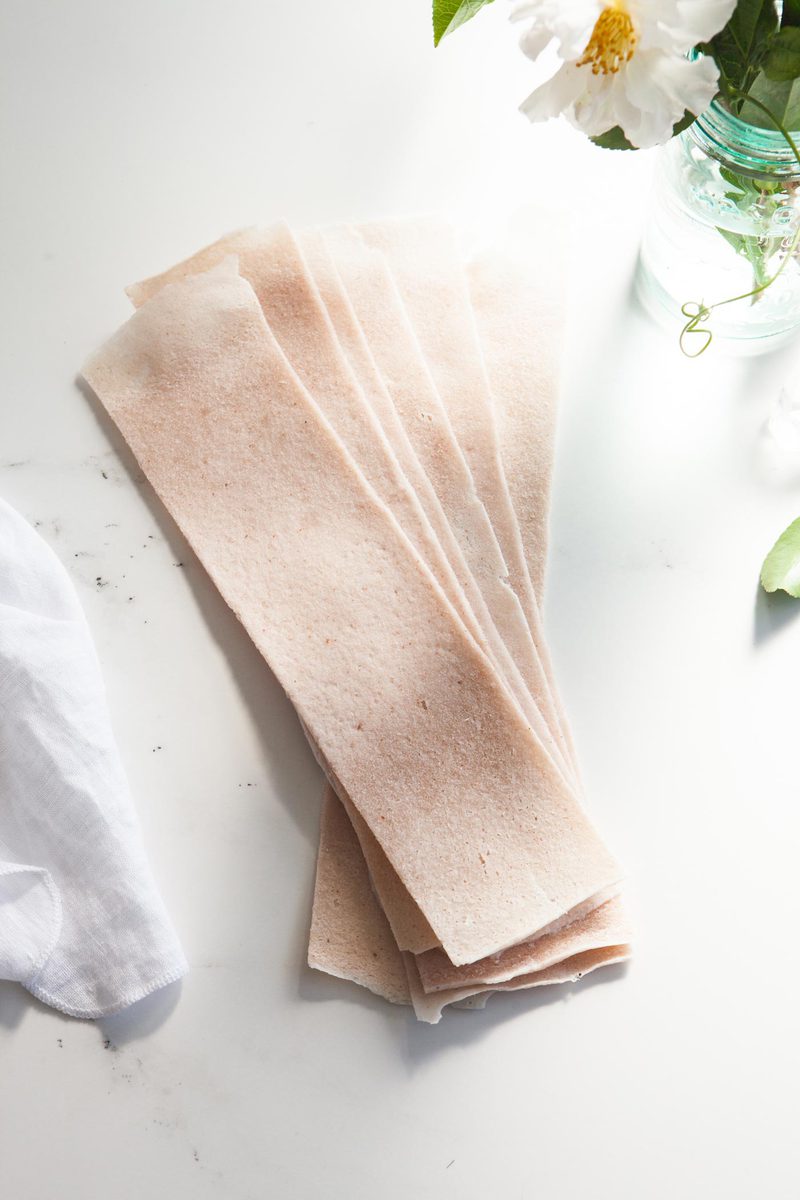
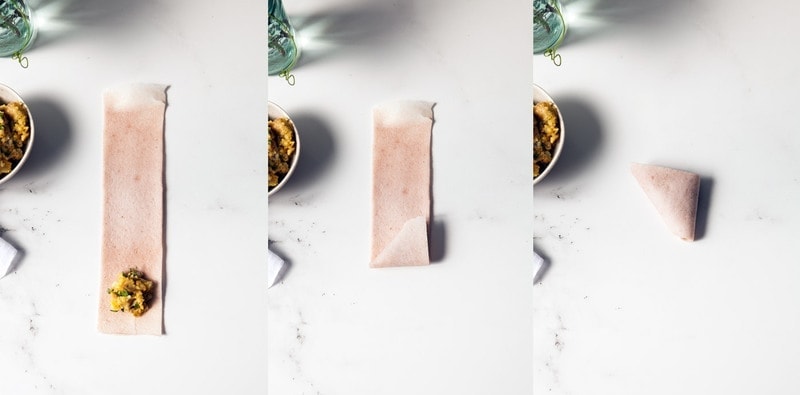
The perfect Samosa filling
Last week I shared a simple recipe for some Turmeric Roasted Potatoes. This makes for the perfect filling in these samosas, with a few little extra additions:
- A sprinkle of curry powder or garam masala spice blend
- A dash of cumin
- Freshly chopped coriander leaves
- Sea salt
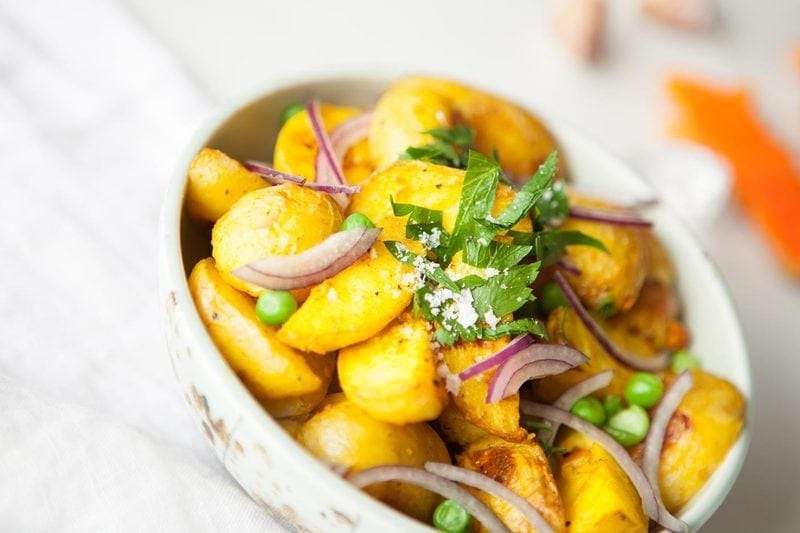
The final recipe
These healthy samosas are yummy served with a simple green salad. As an alternative to the spiced and Roasted Turmeric Potato filling, you could try a raw curried cauliflower ‘rice’.
I hope you enjoy experimenting – there are so many cool things you can do with these wrappers – you can even dye them naturally with a tablespoon of fresh spinach, carrot or beet juice. If you were to make sandwich wraps with them, you could also sprinkle a few fennel seeds and fresh herbs over the top before dehydrating.
Lauren x
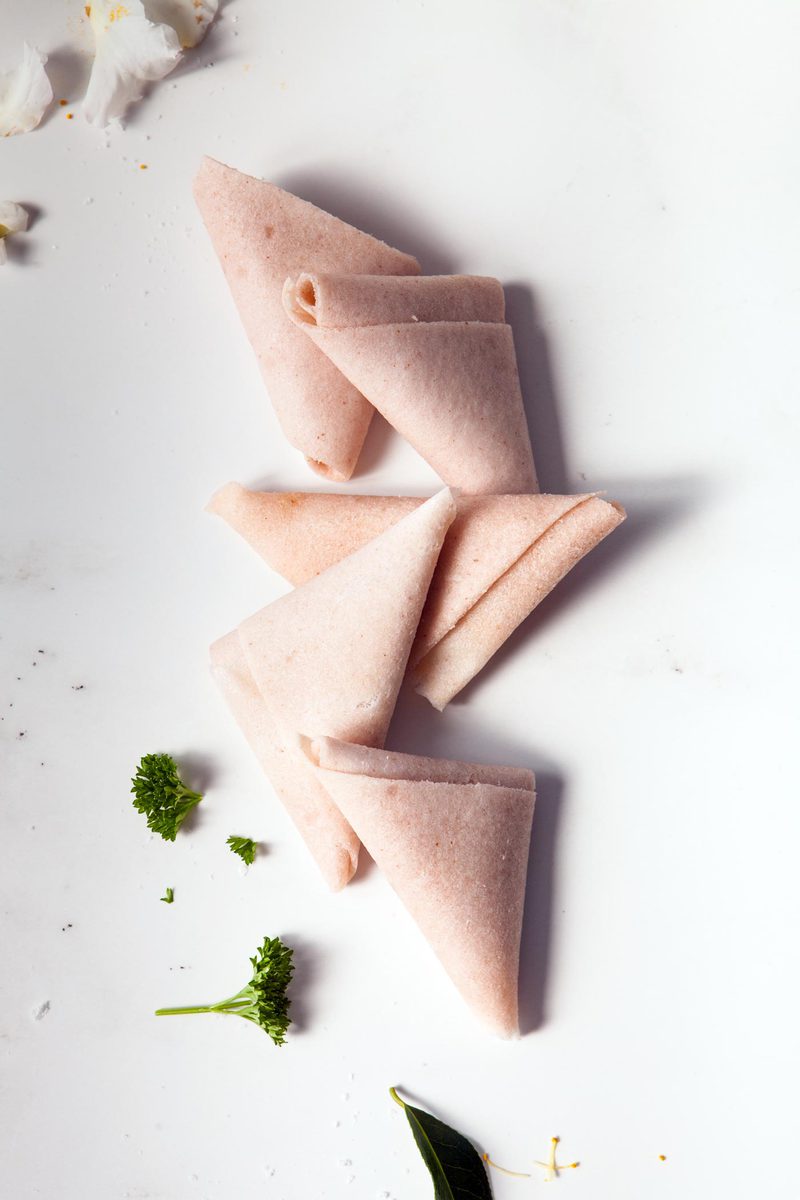
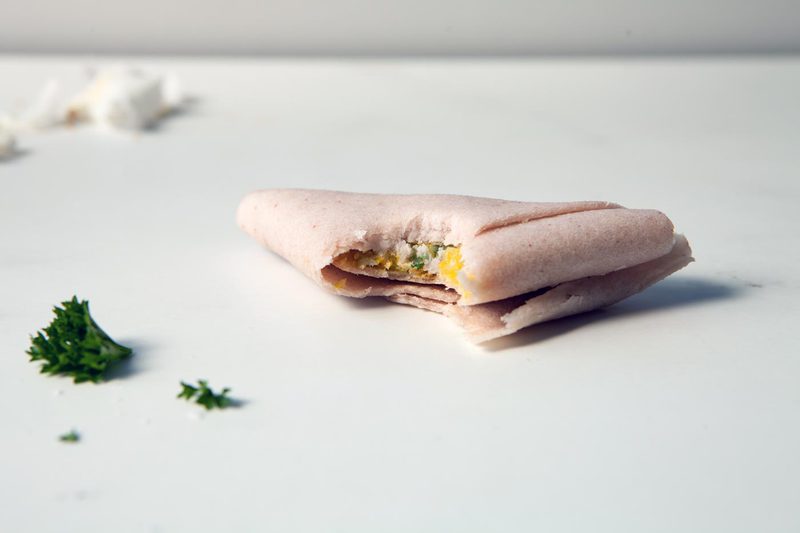
📖Recipe
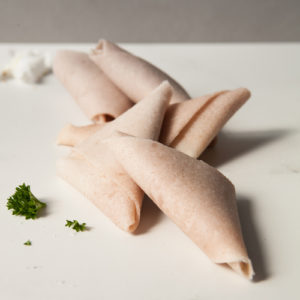
Coconut Wraps
Equipment
- Dehydrator
Ingredients
- 800 g coconut meat/flesh about 4 coconuts
Instructions
- Crack your fresh coconuts and drain the liquid out, set aside.
- Use a spoon to scoop the flesh out, placing it in a sieve.
- Pick the coconut flesh over, removing any debris, then rinse well.
- Add to a blender and blend till smooth, adding reserved coconut water as you go if the coconut meat was a bit hard. The mixture should end up just a little firmer than yoghurt in texture.
- Scoop two cups’ worth of the mixture over a dehydrator tray lined with a teflex sheet. Use a spatula to spread the coconut evenly and smoothly – be careful not to spread too thin, otherwise it will crumble and tear as some of the water eventually evaporates off.
- Repeat with a second tray.
- Place in dehydrator and dry for 6-7 hours at 115˚F. At this point, you’ll want to carefully flip them over to dry the underside.
- Once flipped, dry for another couple of hours max – the trick is to pull them out when they are still a little supple/pliable and not completely dried, otherwise they’ll crack when you go to fold them.
- Remove from dehydrator and cut into strips (four strips per tray, 8 in total).
- Place a spoonful of cold and spiced potato mixture in the bottom centre of each strip, then roll into a triangle shaped samosa.
- Serve with a fresh garden salad!
Notes
Nutrition
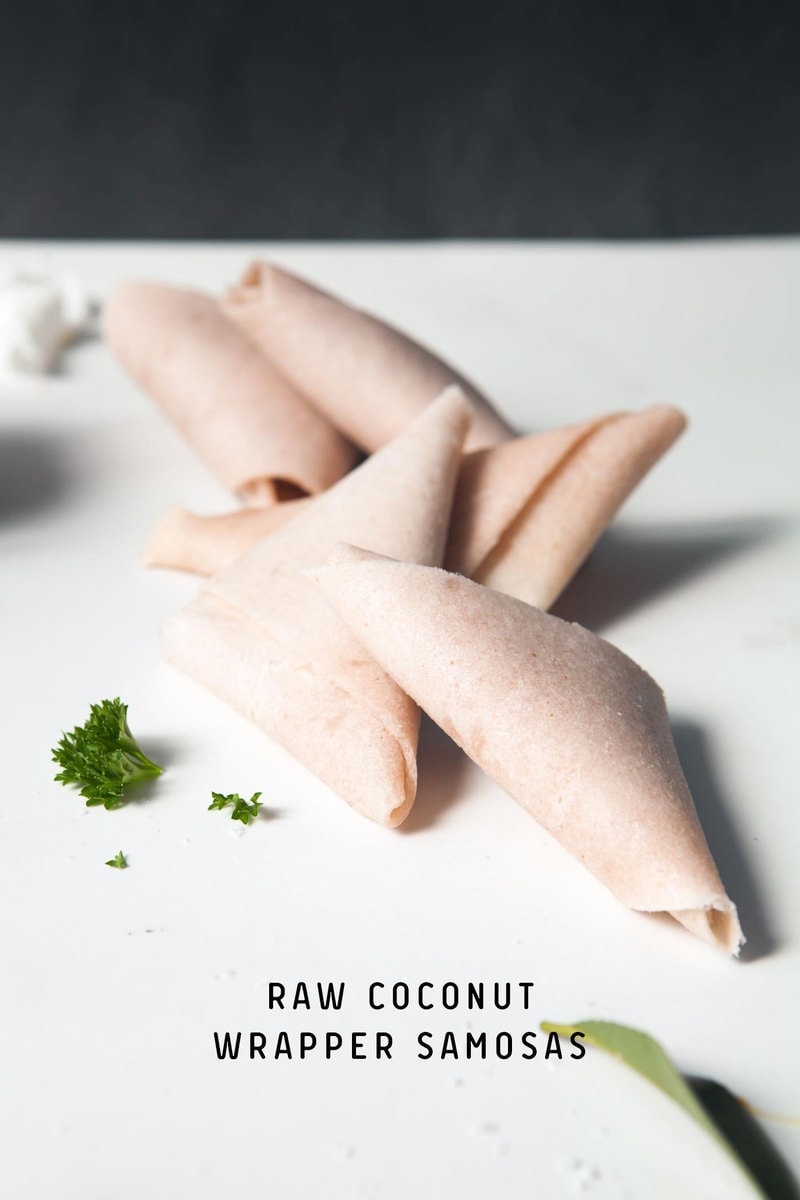
I’d love you to follow me on Instagram,
tag me @ascensionkitchen so I can see your creations!


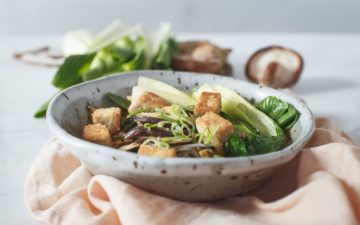
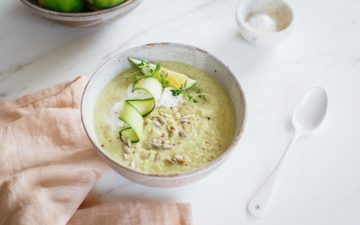
Ask me anything